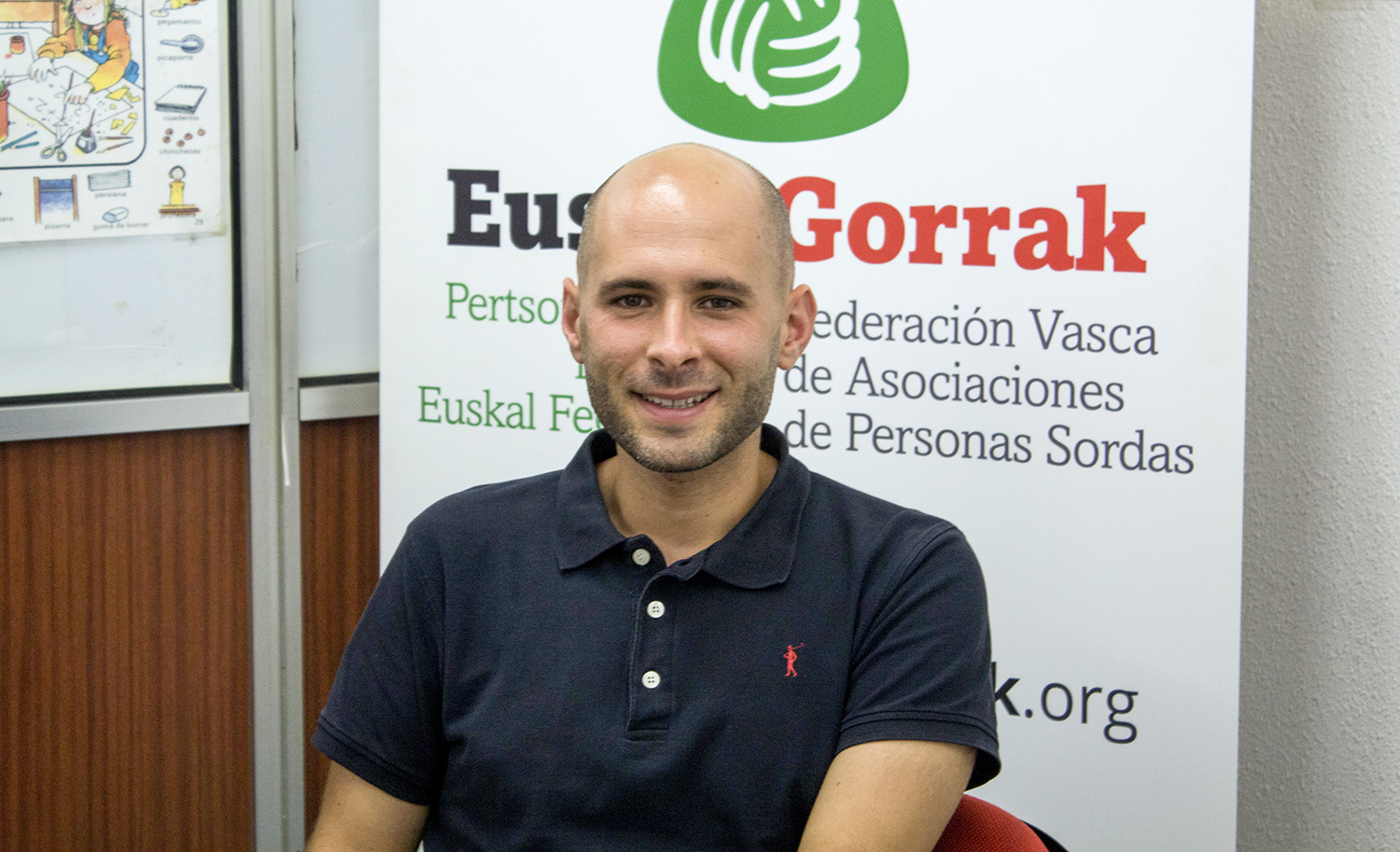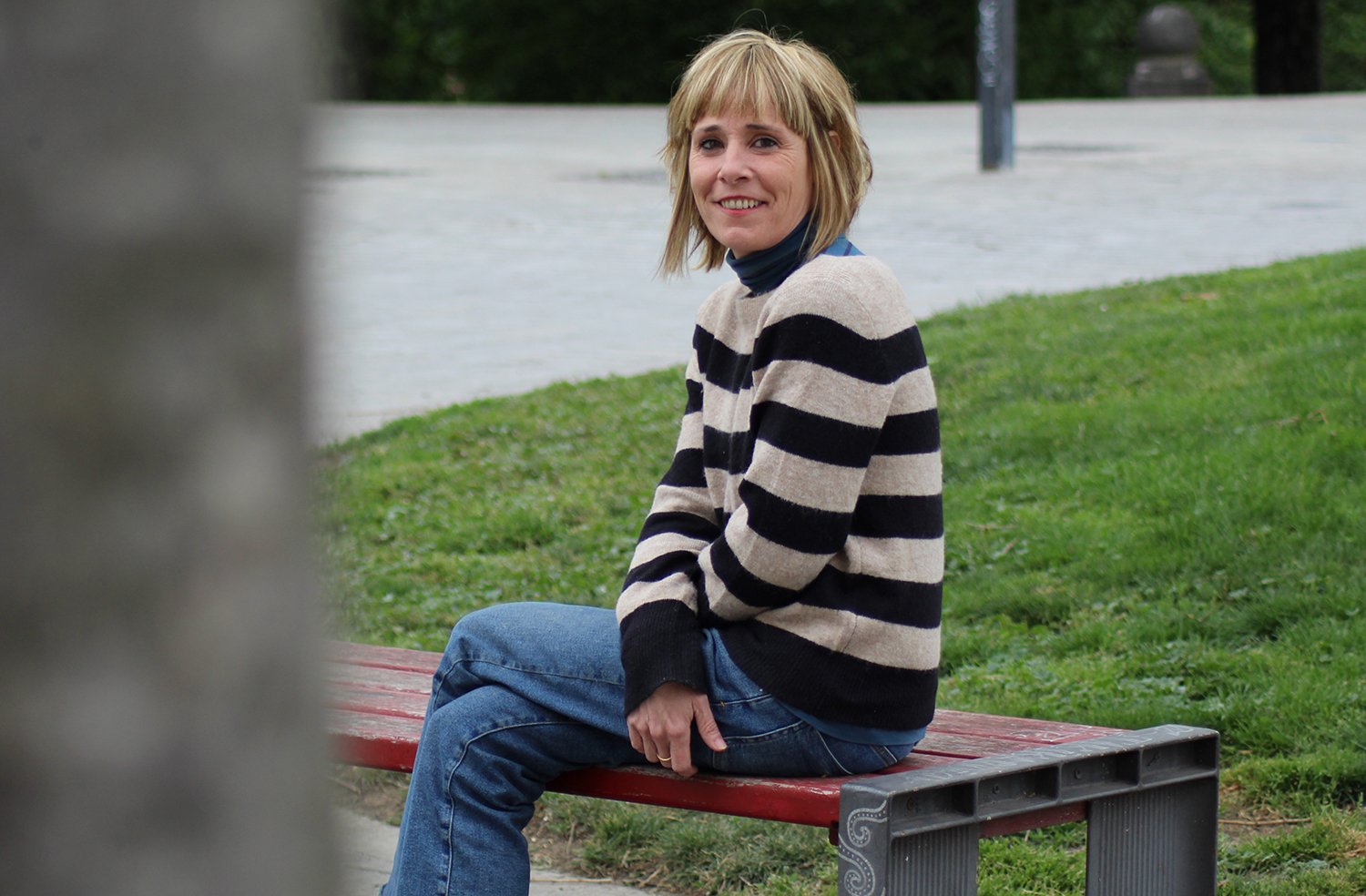"It's very dangerous to think that anyone can teach sign language."
- For Aitor Bedialauneta (Ondarroa, Bizkaia, 1991) it is “essential” that they be heard and respected to work in network. The president of the Basque Federation of Associations of Deaf Persons, Euskal Gorrak, referred to the importance of preserving the quality of sign language. He has denounced that in Hego Euskal Herria there are no university degrees in sign language and that there are no interpreters.

Until recently, the use of sign language was prohibited. Society did not consider it as a language and was used only in “safe” private spaces such as deaf associations. Bedialauneta explained that it has changed over the years: “Thanks to the demands and struggle of the deaf, we have begun to integrate the sign language into Basque society, and more and more people use the language.” However, she warns that we must be careful in its use and take care of the language and quality: “If we make improper use of sign language, deaf people will suffer compensation.” Stresses that it is important to respect the language and not to leave the transmission to anyone: "Even if it is with good will, without wanting things can be done wrong. It is important to ask hate in the face of any doubt.”
The sign language interpreters emerged from the demands of the associative movement of the deaf. Their work is to serve as a bridge for communication between those who know and do not know sign language: “Interpreters are not meant to have a role or to be representatives of deaf people, they don’t speak for anyone, they interpret it from one language to another.”
"We want deaf teachers to engage students with the deaf community."
Due to the lack of training, they have long complained about the lack of interpreters. In other languages, such as Basque, French and Spanish, there are degrees of translation and interpretation at the University of the Basque Country. In the case of sign language, no: “Why are oral languages university degrees and sign language a higher degree cycle?” From the Federation they have been demanding a university degree for years: “The public administrations believed that with the promotions coming out of the higher-level cycles it was enough and, despite our requests, there was no need to create more interpreters.”
In 2016, the higher degree cycle was replaced by the one in Álava, Bizkaia and Gipuzkoa, but it was not carried out. In 2018, the alarm was triggered and the lack of professionals was reported: “We talk to the administration, but they don’t listen to us.” The need increased and the Basque Government began to realize the gravity in 2020: “Many services could not be guaranteed because there were no interpreters, for example, there were students without interpreters in education.” For the course 2024-2025, the UPV/EHU will offer its own degree in October. It will be a one-year training. According to the president of the Federation, although it is not a degree, it is a further step on the road to complete training.
Deaf teachers in the center
Despite his satisfaction, he is critical of the teaching staff and highlights the need for deaf teachers. In the case of Universidad Rey Juan Carlos de Madrid, they have a degree of four years, but there are no deaf professors: “The promos of interpreters that come out of there, I don’t say they are all, but as in general they are not related to the deaf community, they have no positive attitude towards the deaf and they have disrespect.” He stresses that they do not want to reproduce this model in the UPV: “Interpreters have been created thanks to people of hatred. We want there to be deaf teachers so that students relate to the deaf community.”
In addition to the proper training of interpreters, he added that the ideal would be for society as a whole to know sign language. If you don't know, it's best to communicate through short, simple texts, says: “A lot of people tell us to read the lips, but that’s very difficult. Not everyone is able to read their lips, not everyone says the same, that is, slowly. In addition, no more than five minutes will be allowed to circulate in this way. Safe communication cannot be guaranteed.”
He has therefore applauded the fact that in some institutes the language of signs is an optional subject. However, it considered it necessary to ensure the quality of the language: “Can anyone who knows sign language teach? No, it's very dangerous to think that anyone can teach sign language. It has to be done by someone with special training.”
A PART OF THE BODY
- Eyes and hands. Listening is essential to protect yourself, to work hand in hand and to make the network. In the case of Gorrón we do it through the eyes. In addition, hands are indispensable for communication".
.jpg)











